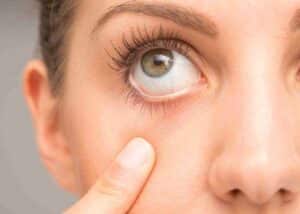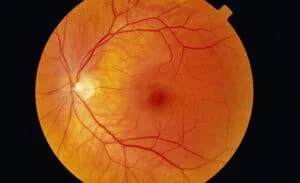Blog
The Eye-Opening Benefits: Understanding How CBD May Benefit Eye Health and Improve Visual Well-being
In recent years, CBD (cannabidiol) has gained significant attention for its potential health benefits. Beyond its well-known applications for pain management and anxiety relief, CBD is now being explored for its potential effects on eye health. This article delves into the emerging research surrounding CBD and its potential benefits for various eye conditions, such as glaucoma and dry eyes. We explore the mechanisms behind CBD’s actions, the current state of scientific knowledge, and the potential implications for improving visual well-being.
Unveiling the Potential: CBD and Glaucoma Management
Glaucoma is a serious eye condition characterized by increased intraocular pressure, which can lead to optic nerve damage and irreversible vision loss if left untreated. The search for effective treatments has led researchers to explore the potential benefits of CBD in managing glaucoma. Studies have suggested that CBD may help lower intraocular pressure by interacting with receptors in the eye’s endocannabinoid system. The endocannabinoid system plays a crucial role in regulating various physiological processes, including the maintenance of intraocular pressure. CBD’s interaction with these receptors may result in a reduction of pressure, potentially offering relief to individuals with glaucoma.
It is important to note that while the initial findings are promising, the effectiveness of CBD as a complementary treatment for glaucoma requires further investigation. Additional research is needed to understand the optimal dosage, delivery methods, and long-term effects of CBD on intraocular pressure. Furthermore, individuals with glaucoma must consult with their healthcare professionals before considering CBD as part of their treatment plan. Healthcare professionals can provide personalized guidance based on the individual’s specific condition and medical history.
By delving into the mechanisms underlying CBD’s potential modulation of intraocular pressure and exploring the current scientific understanding, we gain a better grasp of the potential benefits and limitations of CBD for glaucoma management. As research progresses, a clearer picture will emerge, allowing healthcare providers and patients to make informed decisions about incorporating CBD into their glaucoma treatment strategies. In the meantime, individuals should prioritize regular eye examinations, adhere to their prescribed treatment plans, and consult with healthcare professionals for comprehensive guidance tailored to their specific needs.
Soothing the Eyes: CBD and Dry Eye Syndrome

Dry eye syndrome is a prevalent condition that affects millions of people worldwide. It occurs when the eyes fail to produce an adequate amount of tears or when tears evaporate too quickly, leading to discomfort, redness, and vision disturbances. The potential benefits of CBD for managing dry eye syndrome have generated significant interest within the medical and scientific communities. CBD, a non-psychoactive compound found in cannabis, has been recognized for its potential anti-inflammatory and moisturizing properties. When applied topically or taken orally, CBD interacts with the endocannabinoid system in the eye, which plays a crucial role in maintaining ocular homeostasis. This interaction may help reduce inflammation and promote tear production, providing relief for individuals with dry eyes. However, it is important to note that the current understanding of CBD’s effects on dry eye syndrome is based on preliminary research, and more studies are needed to validate these findings. Additionally, comprehensive eye care, including regular check-ups and lifestyle modifications, remains an integral part of managing dry eye syndrome. Consulting with an eye care professional is essential to determine the most appropriate treatment approach and to ensure optimal eye health.
Nurturing Visual Well-being: CBD and Retinal Health

The retina, a thin layer of tissue located at the back of the eye, plays a vital role in vision by capturing light and transmitting visual signals to the brain. The health of the retina is essential for maintaining clear and sharp vision. Emerging research has explored the potential benefits of CBD in supporting retinal health. CBD, known for its antioxidant and neuroprotective properties, has shown promise in nurturing the well-being of the retina.
Conditions such as age-related macular degeneration (AMD) and diabetic retinopathy pose significant threats to the retina and can lead to vision impairment or even blindness. Studies have started investigating how CBD may influence these conditions. CBD’s antioxidant properties suggest a potential role in reducing oxidative stress and inflammation, which are key contributors to the progression of retinal diseases. By neutralizing harmful free radicals and reducing inflammation, CBD may help protect delicate retinal cells from damage and promote their overall health.
While the research in this area is still in its early stages, the preliminary findings are encouraging. Some studies have shown that CBD administration can reduce inflammation and oxidative stress markers in animal models of retinal diseases. These results provide insights into the potential of CBD as a complementary therapeutic approach for nurturing visual well-being and managing retinal conditions.
It is crucial to approach CBD’s role in retinal health with caution. The complex nature of retinal diseases necessitates further investigation to understand the precise mechanisms by which CBD exerts its effects and to establish optimal dosages and delivery methods. Additionally, individuals with retinal conditions need to consult with their healthcare providers before considering CBD as part of their treatment plan.
By exploring the potential benefits of CBD for retinal health, researchers are paving the way for a deeper understanding of how this cannabinoid may contribute to maintaining visual well-being. Continued research and clinical trials will be vital in unraveling the full potential of CBD in supporting retinal health, potentially offering new therapeutic options for individuals affected by retinal diseases.
A Clearer Vision: CBD and Neuroprotection
Neurodegenerative diseases, such as Alzheimer’s disease and Parkinson’s disease, not only affect cognitive function but can also have a significant impact on vision and overall well-being. The potential neuroprotective properties of CBD have garnered attention as a potential therapeutic avenue for these conditions. In this section, we delve into the emerging research on CBD’s effects on neuroprotection and its implications for maintaining visual health.
Preliminary studies have shown that CBD may have neuroprotective effects by reducing oxidative stress, inflammation, and excitotoxicity, which are common mechanisms implicated in neurodegenerative diseases. These properties have prompted researchers to explore CBD’s potential benefits for maintaining visual health in conditions like Alzheimer’s disease and Parkinson’s disease.
In Alzheimer’s disease, the accumulation of amyloid beta plaques and tau protein tangles leads to neuroinflammation and neuronal damage, which can result in vision impairment. CBD’s anti-inflammatory properties may help mitigate this neuroinflammation and potentially protect neurons in the visual pathways, thereby supporting visual health. Furthermore, CBD’s antioxidant effects may help counteract the oxidative damage associated with Alzheimer’s disease, potentially preserving retinal function and overall visual acuity.
Parkinson’s disease, characterized by the loss of dopaminergic neurons, can also impact visual function. CBD’s interaction with the endocannabinoid system, particularly the CB1 and CB2 receptors, may modulate the release of neurotransmitters and offer neuroprotective benefits. By reducing neuronal damage and inflammation in the visual pathways, CBD may contribute to maintaining visual health in individuals with Parkinson’s disease.
While the initial findings are promising, it is crucial to note that research in this area is still in its early stages. Further studies are needed to elucidate the full potential of CBD in neuroprotection and its specific impact on visual function. Rigorous clinical trials with larger sample sizes and long-term follow-ups are necessary to establish the efficacy, safety, and optimal dosages of CBD for neurodegenerative diseases and their associated visual impairments.
It is also important to approach CBD used for neurodegenerative diseases under the guidance of healthcare professionals. They can provide personalized recommendations, consider potential drug interactions, and help monitor any potential side effects. As the scientific understanding of CBD’s neuroprotective effects continues to evolve, it holds promise as a possible adjunct therapy for maintaining visual health in individuals with neurodegenerative diseases.
Through the Lens
The potential benefits of CBD for eye health and visual well-being are an exciting area of exploration. While preliminary research suggests promising avenues, it is essential to approach CBD use for eye-related conditions with caution and under the guidance of healthcare professionals. As our understanding of CBD and its effects on eye health continues to evolve, further research will be necessary to uncover its full potential and establish evidence-based guidelines. By staying informed, individuals can make informed decisions and engage in discussions with their healthcare providers about CBD’s role in supporting eye health and improving visual well-being.


